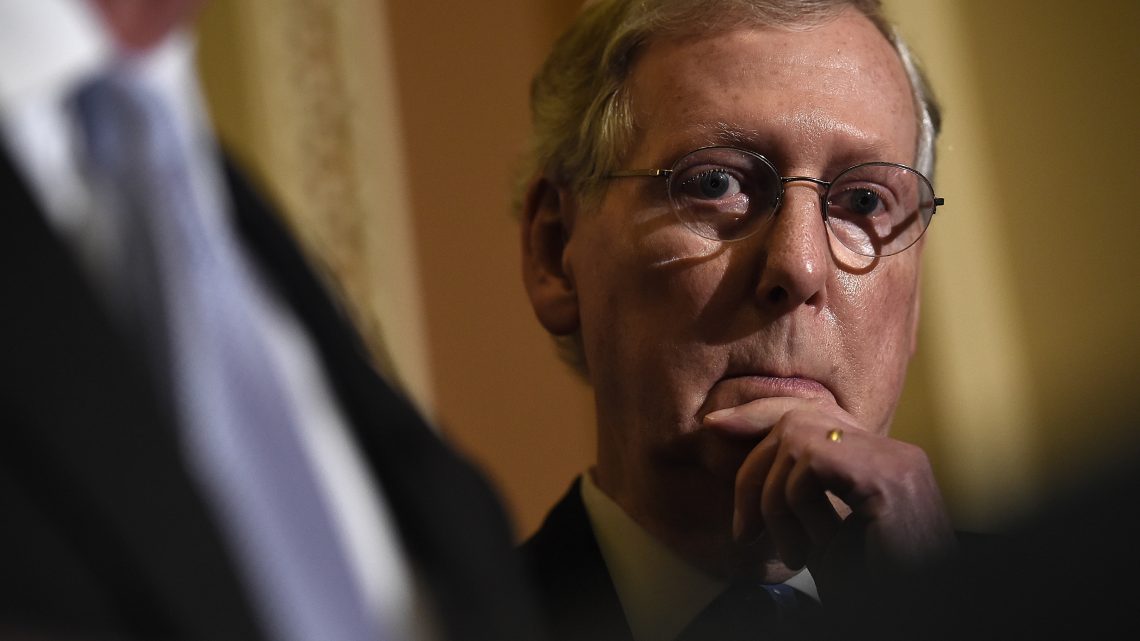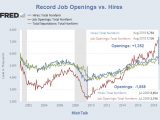
Republicans Are Outraged About the Deficit They Caused
October 16, 2018The Republican war on government is no secret. For decades, the GOP has worked in concert with a coterie of right-wing institutions to cripple core functions of the state ranging from tax collection to public schools to healthcare. The party and its leaders are sometimes honest about their aims, like when Ted Cruz talks about abolishing the IRS, or when Newt Gingrich said they hoped Medicare would "wither on the vine" in the 90s. But they go about them in a piecemeal way, like a man trying to burn down his house by setting individual items of furniture on fire. Donald Trump's latest budget proposal outlined a host of harsh cuts that targeted mainly the poor, his EPA has worked to abdicate its responsibility to ensure the nation has clean air and water, the Consumer Financial Protection Bureau is being dismantled from the inside, and Trump's congressional allies want to make it harder for poor people—especially children and the elderly—to eat.
But the hairpin-turn logic Republicans employ to erode the government usually isn't so obvious as it was Tuesday, when Senate Majority Leader Mitch McConnell decried the old GOP bugbear of government spending.
The hypocrisy here would be astounding if anyone had the capacity to be astounded anymore. After spending the Obama era frowning and sighing about how the national deficit (the gap between annual government spending and revenues) was troublingly high, Republicans decided last year to explode that same figure with a tax cut package massively tilted toward the rich and corporations. When warned by various experts that cutting taxes would mean lower revenues and therefore higher deficits, Republicans attacked those analyses as biased and claimed the deficit wouldn't go up all that much. Predictably, the experts were right and the deficit did increase because of the tax cut—despite the persistence of magical supply-side economic thinking. But after Congress passed a bipartisan spending bill that jacked up military spending among other priorities, McConnell is apparently back to caring about the deficit.
His solution doesn't involve cutting the defense budget or raising taxes. In remarks to Bloomberg, he made it clear that "we’re talking about Medicare, Social Security and Medicaid." Here's Republicans' excuse to go after the things they always wanted to destroy.
In fairness, these priorities do make up the majority of the federal budget—spending money to provide health insurance and other forms of security to the poor, the sick, and the old is expensive. But Medicare and Social Security are enormously popular, which is why Trump himself claimed that it was Democrats, not Republicans, were trying to wipe out Medicare in a falsehood-laden USA Today column last week. McConnell's comments make it clear just how big a lie that claim was. And it's not like the Senate leader is alone—his view is apparently shared by White House economic adviser Larry Kudlow, who said last month that "we have to be tougher on spending." (House Speaker Paul Ryan, who is leaving Congress, was another proponent of what's euphemistically called "entitlement reform," though he wasn't able to accomplish anything on that front.)
So, to recap: Republicans, who claim to care about how much money the government is spending, effectively spent a bunch of money by giving tax breaks to the wealthy. Now they're demanding that to solve the problem partly created by that giveaway, the government should cut benefit programs aimed at alleviating suffering among the most vulnerable people in society. The GOP economic policy can be properly summed up by a bastardized Game of Thrones quote: The rich get to eat, and everyone else takes the shit.
This is obviously politically toxic, since most Americans actually seem to want Medicare expanded. It's also nonsensical from a common-sense policy perspective. Even if you don't buy the lefty idea that deficits don't matter, if you were really concerned about the federal balance sheet, why would you reject the idea of ever raising taxes? Why is the revenue side of the ledger completely off the table whenever a conservative talks about fiscal responsibility?
The answer, of course, is that the rich want lower taxes and the Republican Party is the party of the rich. Even if the combination of tax cuts and slashed benefits is both unpopular and a bad idea on the merits, Republicans will still support it just as rats instinctively chew through wires even if it kills them and starts fires. And just as negotiating with those rats is pointless, debating Republicans on economic policy seems like a lost cause—the GOP only cares about deficits when it's politically convenient, and it won't be honest about its policy goals.
Even when McConnell admitted that the Republicans were going to go after Social Security and Medicare, it was clear that he was also doing a bit of political positioning. "Entitlement changes, which is the real driver of the debt by any objective standard, may well be difficult if not impossible to achieve when you have unified government," he told Bloomberg. In other words, if Republicans lose control of Congress in the midterms, expect them to start hollering at the Democrats about making vicious benefit cuts in the name of responsibility and thrift—cuts too unpopular even for the current crop of GOP politicians dominating DC to openly advocate for.
If Democrats learned anything from the past two years, they won't be listening.
Sign up for our newsletter to get the best of VICE delivered to your inbox daily.
Follow Harry Cheadle on Twitter.


